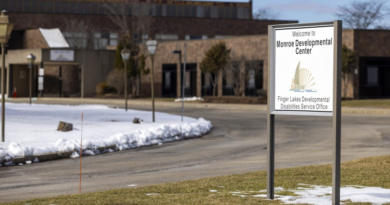15-year-old social media influencer who claims her parents ripped her off inspires Illinois law allowing kids to sue
Illinois is the first state in the U.S. to ensure child social media influencers are compensated for their work, according to Sen. David Koehler, of Peoria, who sponsored a bill that was signed into law and will go into effect on July 1, 2024.
“The rise of social media has given children new opportunities to earn a profit,” Koehler said in an emailed press release after the bill was signed Friday afternoon. “Many parents have taken this opportunity to pocket the money, while making their children continue to work in these digital environments.”
The idea for the law, which covers children under the age of 16 featured in monetized online platforms, including video blogs (also known as vlogs), was brought to Koehler by a 15-year-old in his district, the Democratic senator said.
Besides coordinated dances and funny toddler comments, family vlogs nowadays may share intimate details of their children’s lives — grades, potty training, illnesses, misbehaviors, first periods — for countless strangers to view. Brand deals featuring the internet’s darlings can reap tens of thousands of dollars per video, but so far there are minimal regulations for the “sharenthood” industry, which experts say can cause serious harm to children.
“Videos with kids do really well,” said Bobbi Althoff, a TikToker with more than 5 million followers who used to feature her young daughter in paid advertising, but has since decided not to for privacy reasons.
Many states already require parents to set aside earnings for child entertainers who perform in more traditional settings such as movies and television, but Illinois’ law will be the first to specifically target social media starlets, according to Landon Jacquinot, who is tracking child labor legislation for the National Conference of State Legislatures.
“We could see other states looking into doing something similar, especially in states that have a high volume of family vloggers and social media influencers,” such as California and New York, Jacquinot said. “It’s kind of a new world.”
The Illinois law will entitle child influencers to a percentage of earnings based on how often they appear on video blogs or online content that generates at least 10 cents per view. To qualify, the content must be created in Illinois, and kids would have to be featured in at least 30% of the content in a 30-day period.
Video bloggers — or vloggers — would be responsible for maintaining records of kids’ appearances and must set aside gross earnings for the child in a trust account for when they turn 18; otherwise, the child can sue.
Children “deserve to be shielded from parents who would attempt to take advantage of their child’s talents and use them for their own financial gain,” said Alex Gough, a spokesperson for Illinois Gov. J.B. Pritzker, after the governor signed the legislation.
Shreya Nallamothu, the teen who brought her concerns to Koehler and set the legislation in motion, first zeroed in on the issue while scrolling through social media during quarantine three years ago.
“I realized that there’s a lot of exploitation that can happen within the world of ‘kidfluencing,’” said Nallamothu, now 16. “And I realized that there was absolutely zero legislation in place to protect them.”
She clarified that the law is not meant for parents who share photos of their kids on social media for family and friends, or even those who post a viral video. “This is for families who make their income off of child vlogging and family vlogging,” she said.
Lawmakers in Illinois, where Democrats hold a supermajority, passed the bill in May with bipartisan support.
Other Democratic-led states have made efforts to regulate the child influencer industry with less success. A 2018 California child labor bill included a social media provision that was removed by the time it was passed. Washington state’s 2023 bill — spearheaded by Chris McCarty, another teen and the founder of Quit Clicking Kids, an advocacy organization focused on protecting minors being monetized online — stalled out in committee.
“I sincerely hope that this momentum continues in other states and eventually nationwide,” McCarty said Friday about the Illinois law.
But several Republican-led states this year have instead loosened child labor laws to help alleviate workforce shortages. An Iowa law signed at the end of May allows teenagers to work more jobs and for longer hours, and Arkansas in March eliminated permits that required employers to verify a child’s age and a parent’s consent.
___
Savage is a corps member for the Associated Press/Report for America Statehouse News Initiative. Report for America is a nonprofit national service program that places journalists in local newsrooms to report on undercovered issues.



